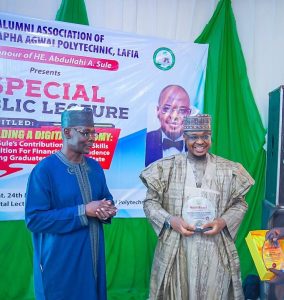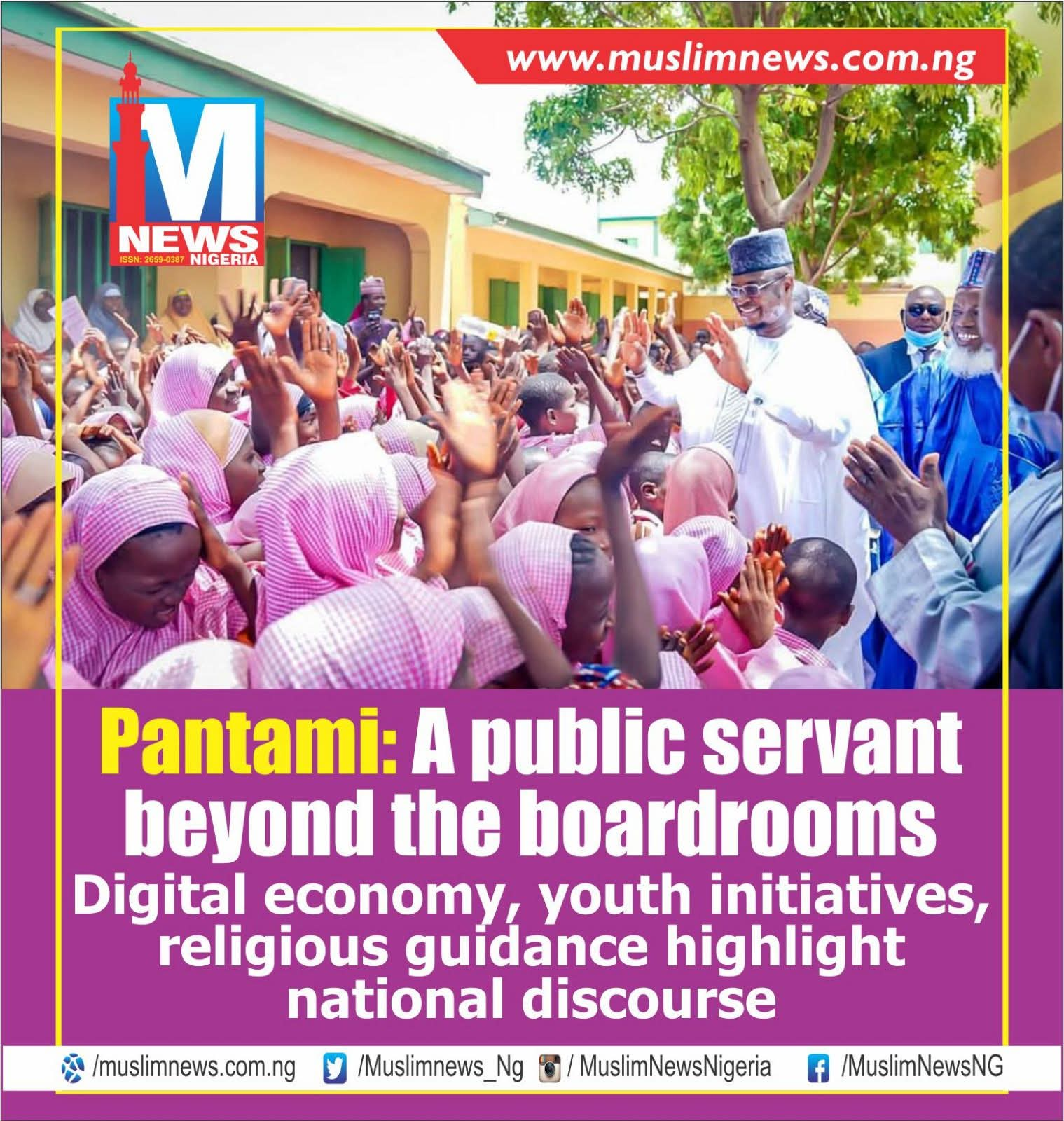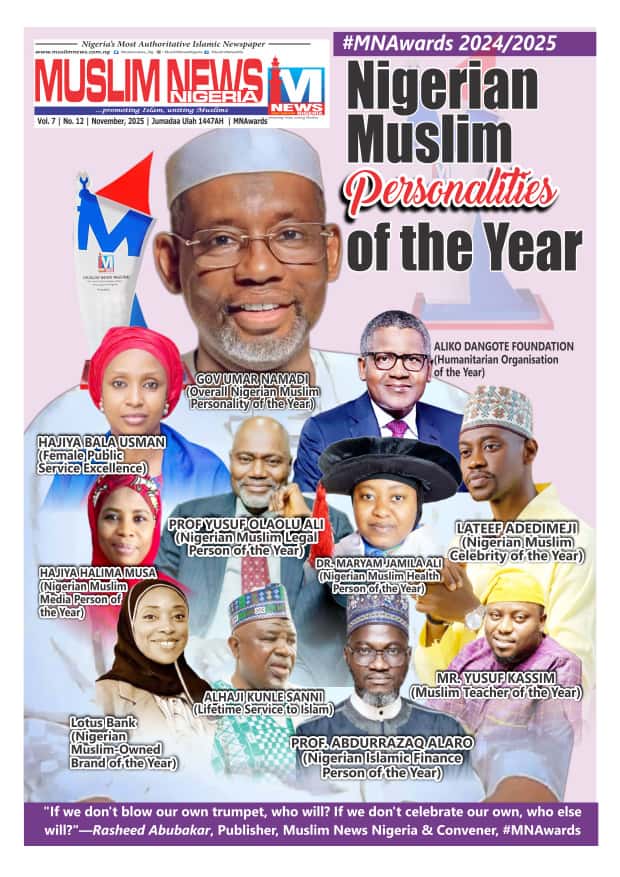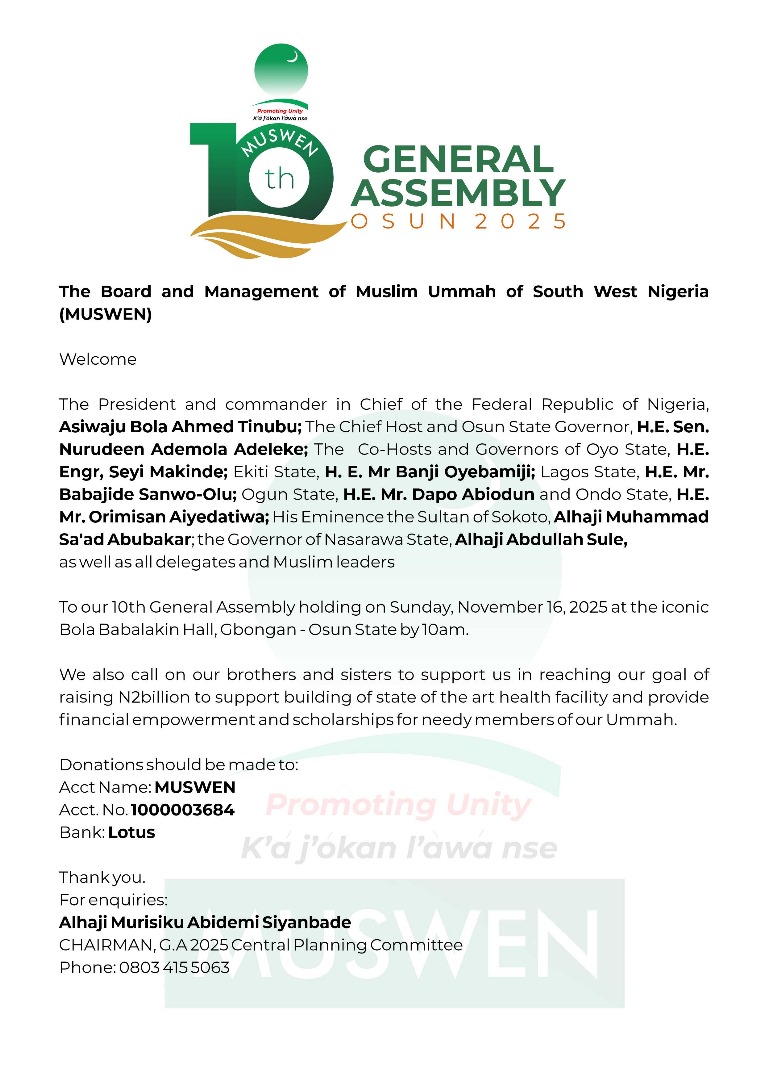By Rasheed Abubakar
* Digital economy, youth initiatives, religious guidance highlight national discourse
In a world where public service often strips men of their convictions, Professor Isa Ali Ibrahim Pantami stands as a striking exception – a man who didn’t find religion in power, but brought his faith along into power.
Long before his appointment as Director General of the National Information Technology Development Agency (NITDA) of Nigeria from 2016 to 2019 and Minister of Communications and Digital Economy under former President Muhammadu Buhari between 2019 and 2023, Prof Pantami was known across Islamic circles as a scholar, a preacher, and a man deeply rooted in the traditions of knowledge and worship.
As a respected Muslim scholar, his thoughtful sermons inspired hearts, and his academic works shaped minds.
Even now, years after stepping out of public office, Muslim News findings revealed that the fusion of spiritual depth and intellectual intensity still defines him.
Insightful sermons during Hajj 2025
During the just concluded Hajj, pilgrims witnessed Prof Pantami not as a former minister, but as a servant of God, delivering powerful lectures, advising them on sincerity in worship, and reminding them of the sanctity of life, property, and honour.
In preparation for the beginning of Hajj rites, the Gombe-born international scholar delivered a lecture on “Power of dua” where he said there is nothing more honourable before Allah as dua.

In a sermon monitored by our correspondent, Prof Pantami continued that performing an action is one thing and for that action to be accepted by Allah is another thing.
According to him, “Not all good actions are accepted. Some Muslims perform actions that are accepted while some aren’t accepted. Why? It has to do with self evaluation, self judgement, self criticism in order to ensure we fulfill all the conditions of Allah accepting our good deeds.”
He mentioned two conditions for the acceptance of dua, firstly, the motive of every action you do should be to please Allah; secondly, making sure the Ibadah (worship) from the beginning to end follows the way taught by Prophet Muhammad (SAW).

During the climax of Hajj rites at the plains of Arafah on Thursday, June 4, Prof Pantami’s admonition drew from prophetic traditions, emphasising that good deeds are not accepted by default, but only when done sincerely and in accordance with the teachings of the Prophet Muhammad (SAW). This ability to teach profound truths in simple, actionable ways has always been one of his greatest strengths.
His voice commands attention in intellectual space
But what makes Prof Pantami even more remarkable is how effortlessly he moves between the mosque and the ministry, between the pulpit and public policy. While many technocrats might leave their values behind in the pursuit of governance, Prof Pantami’s values led the way.
His time in public office was not just defined by integrity, it was defined by results. From the rebranding of his ministry to align with Nigeria’s digital transformation goals, to the implementation of broadband policies and digital identity frameworks, his impact was undeniable. Even his critics acknowledge that Nigeria’s ICT landscape experienced its most dynamic period under his watch.

A respected academic with numerous scholarly publications, Pantami’s voice continues to command attention in the intellectual space. Just weeks ago, he delivered a keynote lecture in honour of Governor Abdullahi Sule of Nasarawa.
Themed “Building a Digital Economy; A.A Sule’s Contributions to ICT & Skills Acquisition for Financial Independence Among Graduates in Nasarawa State”, Prof Pantami highlighted the urgent need for investment in skills acquisition, digital agriculture, and youth empowerment.
In that lecture, as in many others, he reminded his audience that human capital is Nigeria’s most valuable resource – and it must be cultivated with vision and urgency.
He continues to win hearts with his Foundation
But Pantami’s work doesn’t end in lecture halls or boardrooms. Through his foundation, he continues to touch lives across Nigeria. During the just-concluded Eid-al-Adha 2025 celebrations, the Professor Isa Pantami Foundation distributed 12 cows, 150 rams, and ₦66 million to orphans, scholars, and underprivileged families across Gombe and Abuja. It was not a one-off gesture; it was part of a long-standing tradition of service.

For a man who has risen through the ranks of academia, governance, and spiritual leadership, Pantami remains deeply grounded. His Instagram feed is not a parade of vanity, but a window into service – hospital visits, community donations, and book launches. He walks the talk, often quietly, always sincerely.
Quest for 2027 Guber race in Gombe
And so, it comes as no surprise that whispers of a possible 2027 governorship bid in Gombe State are growing louder. They’ve never really gone away. In fact, they began while he was still a minister, with supporters urging him to bring the same passion and clarity he brought to national policy home to his people. As Gombe navigates the challenges of underdevelopment, youth unemployment, and security, many see Pantami as a beacon, not just of competence, but of hope.
Would he run? Only time will tell. But if he does, it would not be an ambition driven by noise, but by necessity – a call to service, grounded in experience and proven by results. Gombe State stands at a crossroad, and if it chooses to embrace a future of innovation, integrity, and inclusive growth, there’s little doubt that Professor Isa Ali Pantami offers a compelling path forward.
He is not just the digital professor. He is not just the scholar. He is not just the philanthropist. He is a man of substance in a time hungry for meaning. And perhaps, just perhaps, he is the leader Gombe has been waiting for.







